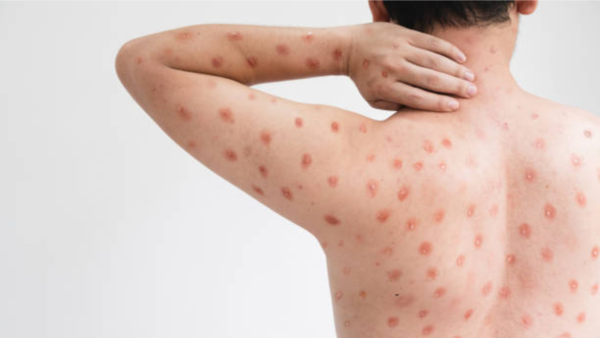Mpox not under control as deadly variant found in the UK: Will winter fuel the next epidemic?

A worrying statement has been given by the African CDC, which has been working hard to tackle this year’s monkeypox infection, in which the majority of deaths have been in the Democratic Republic of Congo, the epicentre of the outbreak.
The African Union’s health watchdog on Thursday warned that mpox outbreak was still not under control and appealed for resources to avoid a “more severe” pandemic than COVID.
Just as this statement comes from the African CDC, the super spreader variant of the monkeypox or mpox virus has been detected in the UK, triggering an alarming situation. The clade 1b virus strain has been found in the UK. This vrisu was declared a global health emergency by the World Health Organisation (WHO) in August. Mpox has killed more than 1,000 in Africa this year.

The UK case, in a patient who had recently travelled to affected countries in Africa, was detected in London and the individual has been transferred to a specialist hospital, the UKHSA said.
There have been cases of mpox clade Ib reported in Burundi, Rwanda, Uganda, Kenya, Sweden, India and Germany, as well as Congo.
How mpox spreads
Mpox, formerly known as monkeypox, primarily spreads through close, direct contact with an infected person. This includes skin-to-skin contact with rashes, lesions, or bodily fluids of someone with mpox. It can also spread through respiratory droplets during prolonged face-to-face interaction, such as talking or coughing, though this is less common.
Monkeypox infection: When to seek medical help
Another transmission route is through contaminated objects like clothing, bedding, or towels used by an infected person. Animal-to-human transmission can also occur if a person is bitten by or handles an infected animal. Practicing good hygiene and avoiding close contact with infected individuals can help prevent the spread of mpox.
Can winter trigger mpox epidemic?
While winter itself may not directly trigger a mpox epidemic, the season could increase risks of spread. Colder weather drives people indoors, often into crowded or poorly ventilated spaces where viruses can transmit more easily through close contact.
Lower humidity and weakened immunity in winter months can also contribute to respiratory virus spread, although mpox primarily spreads through direct skin-to-skin contact. Increased respiratory transmission risks could occur if people have prolonged, close indoor interactions.
Signs of mpox
Mpox symptoms start with fever, headache, muscle aches, and fatigue. Several days later, the rash is more characteristic, initially on the face and eventually spreading to other parts of the body, including hands, feet, and genitals. The rash goes through various stages: it starts off as flat spots, becomes raised bumps, fluid-filled blisters, and then scabs that fall off. Swollen lymph nodes, especially in the neck and armpits, are another key symptom that distinguishes mpox from other similar diseases. Symptoms usually last two to four weeks and can either be mild or severe.
(Inputs from agencies)








